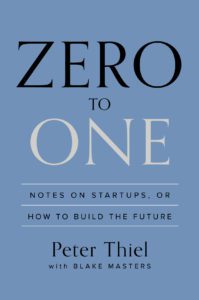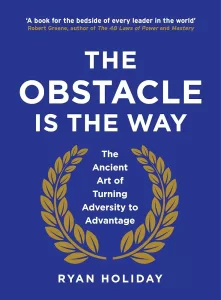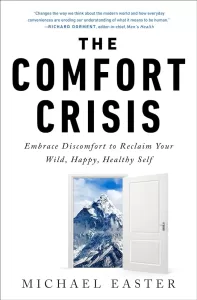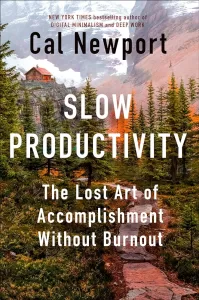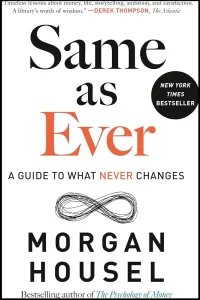Book Review: “Zero to One”
Book: Zero to One by Peter Thiel with Blake Masters
Reviewer: Bobby Powers
My Thoughts: 9 of 10
After co-founding PayPal, Peter Thiel funded Facebook, LinkedIn, and SpaceX, among other successful start-ups. This book, written with Blake Masters, is Thiel's instruction manual for how to think like an entrepreneur. The most fascinating idea in the book is Thiel's description of a "creative monopoly." He convincingly argues that true competition is counterproductive to society, and that consumers are best served by creative monopolies that offer breakthrough products.
Takeaways from the Book
Going from Zero to One
- “Horizontal or extensive progress means copying things that work—going from 1 to n. Horizontal progress is easy to imagine because we already know what it looks like. Vertical or intensive progress means doing new things—going from 0 to 1. Vertical progress is harder to imagine because it requires doing something nobody else has ever done.”
- “Every moment in business happens only once. The next Bill Gates will not build an operating system. The next Larry Page or Sergey Brin won’t make a search engine. And the next Mark Zuckerburg won’t create a social network. If you are copying these guys, you aren’t learning from them.”
- “Properly understood, any new and better way of doing things is technology.”
- “By creating new technologies, we rewrite the plan of the world.”
Lessons for Start-Ups
- “What valuable company is nobody building?…Creating value is not enough—you also need to capture some of the value you create.”
- “Startups operate on the principle that you need to work with other people to get stuff done, but you also need to stay small enough so that you actually can. Positively defined, a startup is the largest group of people you can convince of a plan to build a different future.”
- “Always err on the side of starting too small. The reason is simple: it’s easier to dominate a small market than a large one.”
- “If you focus on near-term growth above all else, you miss the most important question you should be asking: will this business still be around a decade from now?”
- “The best startups might be considered slightly less extreme kinds of cults. The biggest difference is that cults tend to be fanatically wrong about something important. People at a successful startup are fanatically right about something those outside it have missed.”
- Interesting interview question: “What important truth do very few people agree with you on?”
Creative Monopolies
- “Under perfect competition, in the long run no company makes an economic profit.”
- “Actually, capitalism and competition are opposites. Capitalism is premised on the accumulation of capital, but under perfect competition all profits get competed away. The lesson for entrepreneurs is clear: if you want to create and capture lasting value, don’t build an undifferentiated commodity business.”
- “Non-monopolists exaggerate their distinction by defining their market as the intersection of various smaller markets…Monopolists, by contrast, disguise their monopoly by framing their market as the union of several large markets.”
- “Monopolists can afford to think about things other than making money; non-monopolists can’t…Only one thing can allow a business to transcend the daily brute struggle for survival: monopoly profits.”
- “Creative monopolists give customers more choices by adding entirely new categories of abundance to the world. Creative monopolies aren’t just good for the rest of society; they’re powerful engines for making it better. Even the government knows this: that’s why one of its departments works hard to create monopolies (by granting patents to new inventions) even though another part hunts them down (by prosecuting antitrust cases).”
- “Every new creation takes place far from equilibrium. In the real world outside economic theory, every business is successful exactly to the extent that it does something others cannot. Monopoly is therefore not a pathology or an exception. Monopoly is the condition of every successful business.”
Lessons for Investors
- “When a big company makes an offer to acquire a successful startup, it almost always offers too much or too little: founders only sell when they have no more concrete visions for the company, in which case the acquirer probably overpaid; definite founders with robust plans don’t sell, which means the offer wasn’t high enough.”
- “The perfect target market for a startup is a small group of particular people concentrated together and served by few or no competitors. Any big market already served by competing companies is even worse. This is why it’s always a red flag when entrepreneurs talk about getting 1% of a $100 billion market. In practice, a large market will either lack a good starting point or it will be open to competition, so it’s hard to ever reach that 1%.”
- “The biggest secret in venture capital is that the best investment in a successful fund equals or outperforms the entire rest of the fund combined.” This is known as the Power Law: “a small handful of companies radically outperform all others.”
- “As a good rule of thumb, proprietary technology must be at least 10 times better than its closest substitute in some important dimension to lead to a real monopolistic advantage. Anything less than an order of magnitude better will probably be perceived as a marginal improvement and will be hard to sell, especially in an already crowded market."
Think you’d like this book?
Other books you may enjoy:
The Hard Thing About Hard Things by Ben Horowitz
Creativity, Inc. by Ed Catmull with Amy Wallace
Startup CEO by Matt Blumberg
Other notable books by the author:
The Diversity Myth by David Sacks and Peter Thiel
